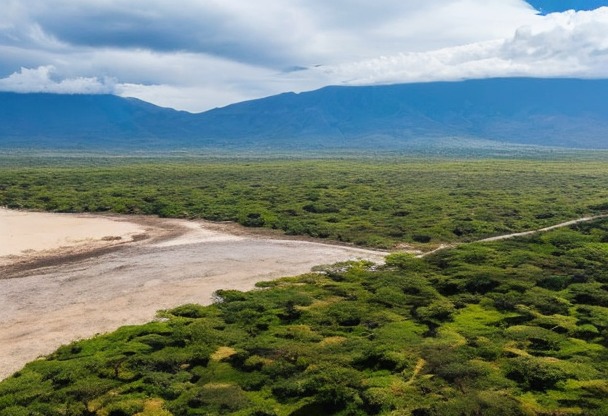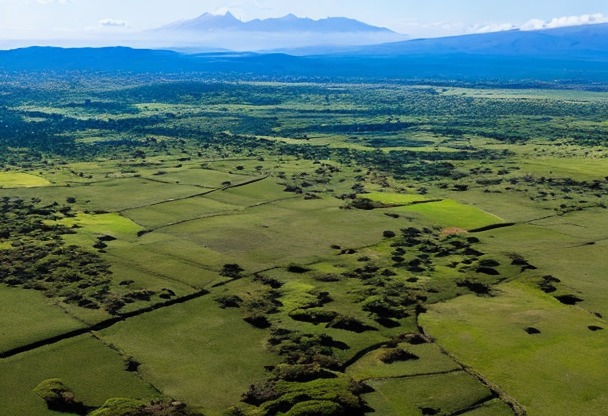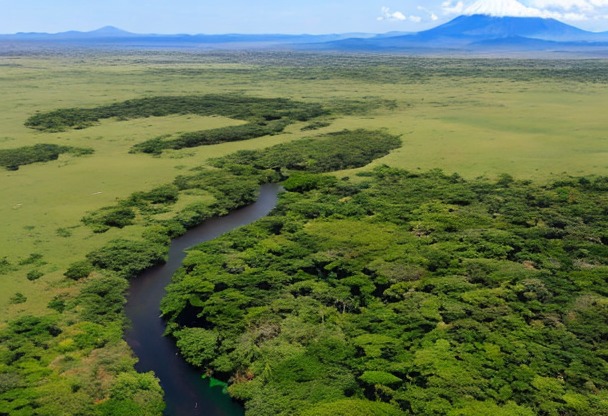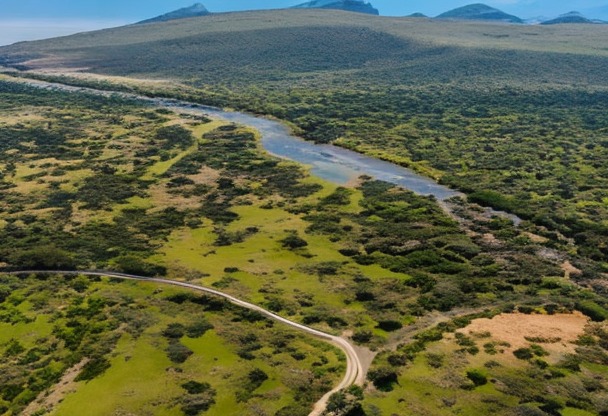WHEN TO TRAVEL TO TANZANIA
Choosing the right period for your trip to Tanzania can make all the difference. It's important to consider climatic elements, seasonal events and peak tourist periods to maximize your travel experience.

Location
Climate
Seasons in Tanzania
Tanzania's climate is generally hot and humid, with variations from region to region. There are two main seasons:- The dry season (June to October): this is the best time to visit the country, as temperatures are pleasant and rainfall infrequent. Animals are also easier to observe, making it an excellent time for safaris.
- The rainy season (November to May): this period is marked by more frequent showers and higher temperatures. However, the landscapes are greener and some cultural events take place at this time of year.
Animal migration season
One of the major attractions of a trip to Tanzania is the spectacle of animal migrations, particularly that of the wildebeests and zebras. It takes place between June and October, during the dry season. So plan your stay accordingly if you wish to attend this unique event.Major cultural events
Throughout the year, Tanzania hosts a variety of events highlighting local traditions and the country's different communities. Here are just a few of the must-see cultural events:- Le Sauti za Busara (February): this African music festival takes place on the island of Zanzibar, bringing together local and international artists for a series of concerts and workshops.
- National Heroes Day (Nyerere Day, October): this day commemorates the life and work of Julius Nyerere, Tanzania's first president. Ceremonies and parades are held throughout the country.
- The Mwaka Kogwa (July): this traditional festival celebrates the arrival of the new year according to the Swahili calendar. It is marked by festivities, ritual fights and bonfires.
Religious festivals
As a multicultural country, Tanzania also hosts several religious festivals throughout the year:- Easter (March or April): this Christian festival is celebrated with great fervor in Tanzania, with masses and processions.
- Ramadan and Eid el-Fitr (dates vary according to the Islamic calendar): during the month of Muslim fasting, activities slow down in Tanzania, especially in Zanzibar. Eid el-Fitr marks the end of Ramadan and is marked by prayers and festivities.
- Christmas (December 25): this Christian holiday is celebrated by a large part of the Tanzanian population. Masses and family meals are organized for the occasion.
Public holidays in Tanzania
In addition to cultural and religious events, it's important to take public holidays into account when planning your trip to Tanzania. Here is a list of the main public holidays in the country:- January 1st : New Year
- January 12 Zanzibar Revolution Day
- February/March Easter (dates vary)
- April 26 Day of union between Tanganyika and Zanzibar
- May 1st Labour Day
- July 7 Industry Day (Saba Saba)
- December 9th Independence Day
- December 25 : Christmas
Impact of public holidays on your trip
During public holidays, some services may be disrupted or unavailable. Public transport may operate on a reduced timetable, and it may be more difficult to find a cab. Banks and bureaux de change are also generally closed on these days. It is therefore advisable to take these factors into account when planning your stay in Tanzania.High and low tourist season
There high season in Tanzania coincides with the dry season, from June to October. This is the most popular time for travelers to enjoy Zanzibar's safaris and beaches. Prices for accommodation and activities are generally higher during this period. Visit low season corresponds to the rainy season, from November to May. Although less propitious for safaris, it allows you to benefit from lower prices and discover the country from a different angle. Hiking and birdwatching enthusiasts will also find much to enjoy during this period.Insurance

Your credit card does not cover you in all situations, that is whyIt is essential to take out insurance before you leave to avoid any unpleasant surprises. If you need to see a doctor or be hospitalized, in some countries, medical costs are very high and you will then find yourself having to pay several thousand euros.
Our partner Chapka Insurance proposes the contract CAP ASSISTANCE 24/24 with many essential guarantees.


Flights

Your flight has been cancelled or delayed ?
You may be eligible for a compensation of up to €600 ! For this, lawyers are responsible for handling your claim with the airline and are only paid when the reimbursement is effective.
In conclusion, no financial risk for you, only advantages!
Immigration statistics for Tanzania
As a developing country in East Africa, Tanzania sees thousands of foreigners arrive every year for a variety of reasons, including work, study, tourism and permanent residence. Over the years, the number of international arrivals has grown steadily, with some fluctuations according to global and regional circumstances. In 2019, for example, the total number of international arrivals in Tanzania was around 1.5 million. These include tourists, economic migrants, refugees and asylum seekers. It should be noted that these figures can vary from year to year due to factors such as regional conflicts, migration policies and economic conditions.Main origins of immigrants in Tanzania
Tanzania welcomes immigrants from all over the world. Here are the main origins of the people who have chosen Tanzania as their destination:- Africa: The majority of immigrants to Tanzania come from other African countries, including neighboring Kenya, l'Uganda and the Rwanda.
- Asia: Asian nationals, mainly fromIndiaare also an important part of the immigrant population in Tanzania.
- Europe: Europeans, particularly the British, are also attracted to Tanzania for a variety of reasons, including tourism and business.
- North America: Americans and Canadians also account for a significant share of international arrivals in Tanzania.
Most popular visas in Tanzania
There are different types of visa available to enter Tanzania, depending on the purpose of your visit and the length of your stay. The most commonly requested visas include :Tourist visa
The tourist visa is by far the most popular type of visa in Tanzania, due to the large number of visitors who come to enjoy the country's natural and cultural attractions. This visa generally allows a stay of between 30 and 90 days, and can be obtained on arrival or in advance from an embassy or consulate.Work visa
The work visa is intended for people wishing to work in Tanzania for a specific period of time. To obtain this visa, it is usually necessary to present a letter of invitation from a local employer and prove that you have the necessary skills for the job. Work visas are often valid for up to two years, with the possibility of renewal if necessary.Student Visa
This type of visa enables foreign students to pursue their studies in Tanzanian higher education institutions. To be eligible, proof of enrolment or acceptance at a Tanzanian university or college is usually required.International tourism figures for Tanzania
Tourism is an important part of Tanzania's economy, with millions of visitors each year coming to enjoy its national parks, paradisiacal beaches and rich culture. Here are some key figures for international tourism in Tanzania:- In 2019, Tanzania welcomed around 1.51 million international touristsThis represents an increase of 8 % over the previous year.
- Revenue generated by the tourism sector reached around US$2.5 billion in 2019, representing around 17 % of Tanzania's gross domestic product (GDP).
- Tourists' main motivations are discovering Zanzibar's national parks and wildlife reserves, cultural and historical visits, and relaxing on its heavenly beaches.
Tourism trends in Tanzania
In recent years, several trends have emerged in the Tanzanian tourism sector:- Diversification of issuing markets : Although the majority of tourists currently come from Europe and North America, there has been significant growth in arrivals from other regions, notably Asia and other African countries.
- Increasing responsible and sustainable tourism: Visitors are increasingly aware of the environmental and social impact of their travels, prompting local tourism operators to adopt more sustainable and responsible practices.
- Attraction to local culture and heritage: Beyond safaris and beaches, tourists are increasingly looking to discover Tanzania's rich history, culture and traditions.


